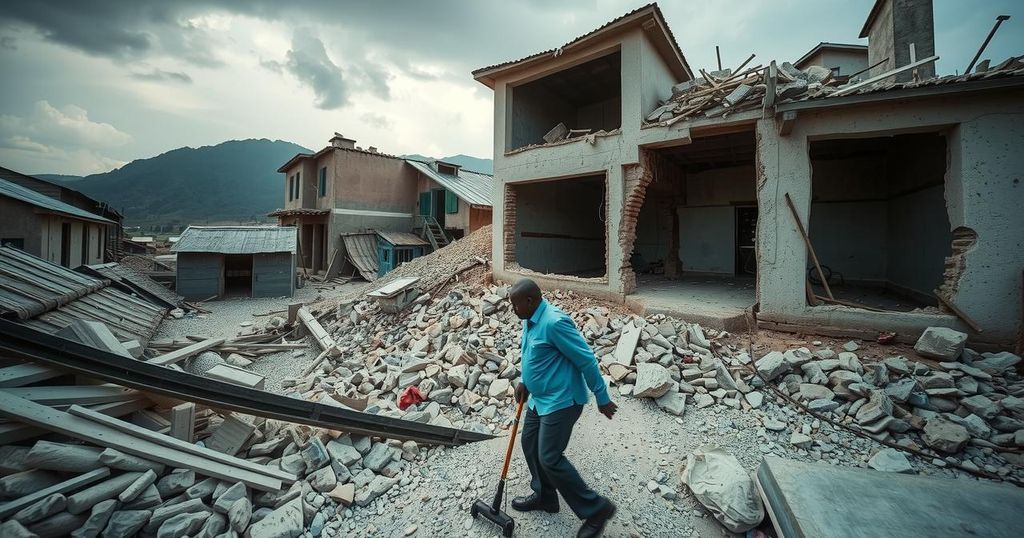World news
ANDREW CARNEGIE, ASIA, BERLIN, BIG FOUR NATIONS, DEMOCRACY, EUROPE, GEORGES CLEMENCEAU, GERMANY, GOVERNMENT, HAITI, HATTIE CARAWAY, JAMARAT, LEGISLATION, MINA, NORTH AMERICA, OF NATIONS, OFFICE OF PRICE ADMINISTRATION, PHILIPPINES, POLITICS, PORT - AU - PRINCE, PRESIDENTIAL ELECTIONS, THEODORE ROOSEVELT, UP, UPI
Ethan Kim
0 Comments
Historical Significance of January 12: A Day of Milestones and Disasters
January 12 features many historical events, including Andrew Carnegie’s anti-trust testimony in 1912, the first meeting of the Big Four in 1919 concluding World War I, and Hattie Caraway being elected as the first female U.S. senator. Other notable occurrences include the tragic Haiti earthquake in 2010, which killed approximately 100,000 and sparked a choleral outbreak, and the recent retaliatory actions against Houthi attacks in 2024.
On January 12 historically marks a series of significant events. In 1912, Andrew Carnegie testified before the Stanley Committee aligning himself with Theodore Roosevelt’s anti-trust stance against President Taft’s trust dissolution plans. The year 1919 saw multiple pivotal occurrences, notably the arrest of UP correspondent John Graudenz by German troops in Berlin, and the inaugural meeting of the leaders of the Big Four nations – President Woodrow Wilson of the United States, Prime Minister David Lloyd George of Britain, Prime Minister Georges Clemenceau of France, and Prime Minister Vittorio Orlando of Italy – to determine post-World War I peace terms.
The significance of January 12 continues into subsequent decades, including Hattie Caraway’s election in 1932 as the first woman to serve a full term as a United States senator, and the replacement of frankfurters with “Victory Sausages” by the U.S. wartime Office of Price Administration in 1943 due to World War II constraints. The shuttle Columbia’s 1986 mission featured U.S. Representative Bill Nelson and marked Franklin Chang-Diaz’s historic journey as the first Hispanic American in space.
In relation to political controversies, January 12, 1994, witnessed President Bill Clinton requesting an independent counsel to investigate the Whitewater land deal, resulting in the appointment of Robert Fiske. Additionally, the tragic event in 2006 at the Jamarat Bridge during a pilgrimage to Mecca resulted in the death of approximately 350 individuals due to a stampede. However, the most devastating event associated with this date is the 2010 magnitude-7 earthquake that struck Haiti, killing an estimated 100,000 people and initiating a severe cholera outbreak that would claim thousands of lives over ensuing years. Most recently, January 12, 2024, it was reported that the United States and its allies executed a significant retaliation against Houthi attacks.
The events that transpired on January 12 illustrate a multitude of historical, political, and humanitarian issues. Significant moments include the progress of women in politics, as evidenced by Hattie Caraway’s election, and pivotal international relations efforts by major world leader collaborations post-World War I. Furthermore, the severe impact of natural disasters, particularly the Haitian earthquake, sheds light on the ongoing challenges faced by nations dealing with infrastructure strain and health crises, underscored by the choleral outbreak that followed shortly after.
In conclusion, January 12 serves as a reminder of both triumphs and tragedies throughout history. From pivotal political meetings and legislative milestones to devastating disasters, this date encapsulates a diverse range of human experiences. The collective historical footprint illustrates the enduring challenges faced by societies, emphasizing the importance of resilience in the face of adversity.
Original Source: www.upi.com




Post Comment